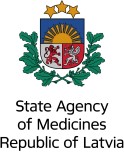Pharmacovigilance is the science and activities related to the detection, assessment, understanding and prevention of adverse effects or any other medicinal product-related problem. The aim of pharmacovigilance is to make medicinal products safer and more effective.
The origins of the word “pharmacovigilance” come from the words pharmakon (meaning “medicines” in Greek) and vigilare (meaning “to watch over” in Latin), meaning monitoring of the safety of medicines.
The tasks of pharmacovigilance
- Identify previously unknown adverse reactions to medicinal products and their interaction;
- Assess the benefit/risk ratio of medicinal products;
- Provide information to the public and healthcare professionals regarding correct and rational use of medicines, based on the latest conclusions;
- Promote and support measures related to the safety of medicinal products.
Activities of the State Agency of Medicines in the field of pharmacovigilance
The State Agency of Medicines (SAM) is responsible for monitoring of the safety of medicinal products in Latvia (regardless of the type of marketing authorisation) and for organising and conduct of pharmacovigilance inspections in the country. SAM performs the following activities in the field of pharmacovigilance:
- Receipt, processing of adverse drug reaction reports and sending them to the European database;
- Signal evaluation;
- Evaluation of risk management plans (RMPs);
- Evaluation of periodic safety update reports (PSURs);
- Conduct of pharmacovigilance inspections;
- Evaluation and approval of risk minimisation measures (educational materials and Direct Healthcare Professional Communications);
- Communication with the public and healthcare professionals regarding safety of medicinal products;
- Evaluation of documentation for post-authorisation safety studies (PASS).













